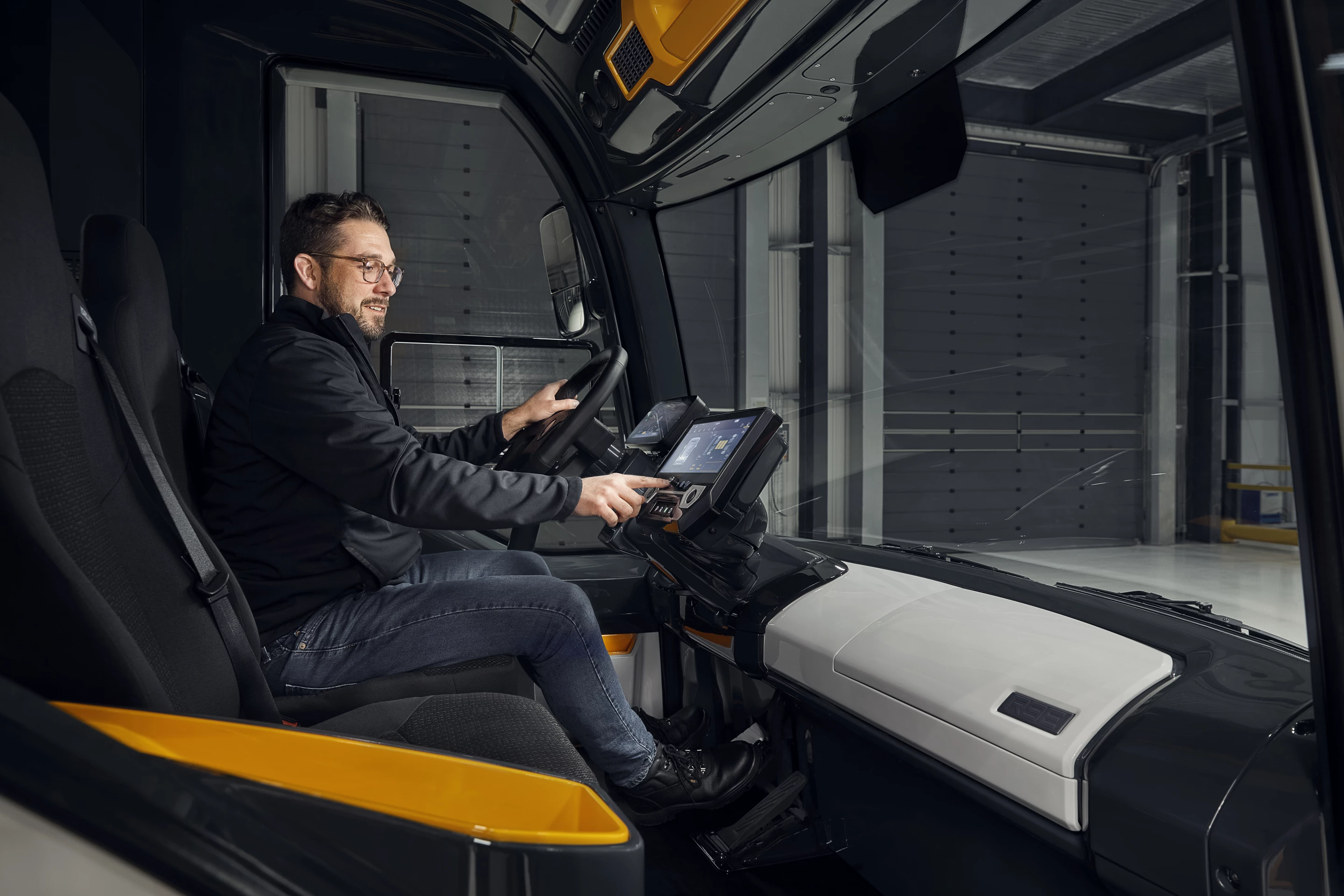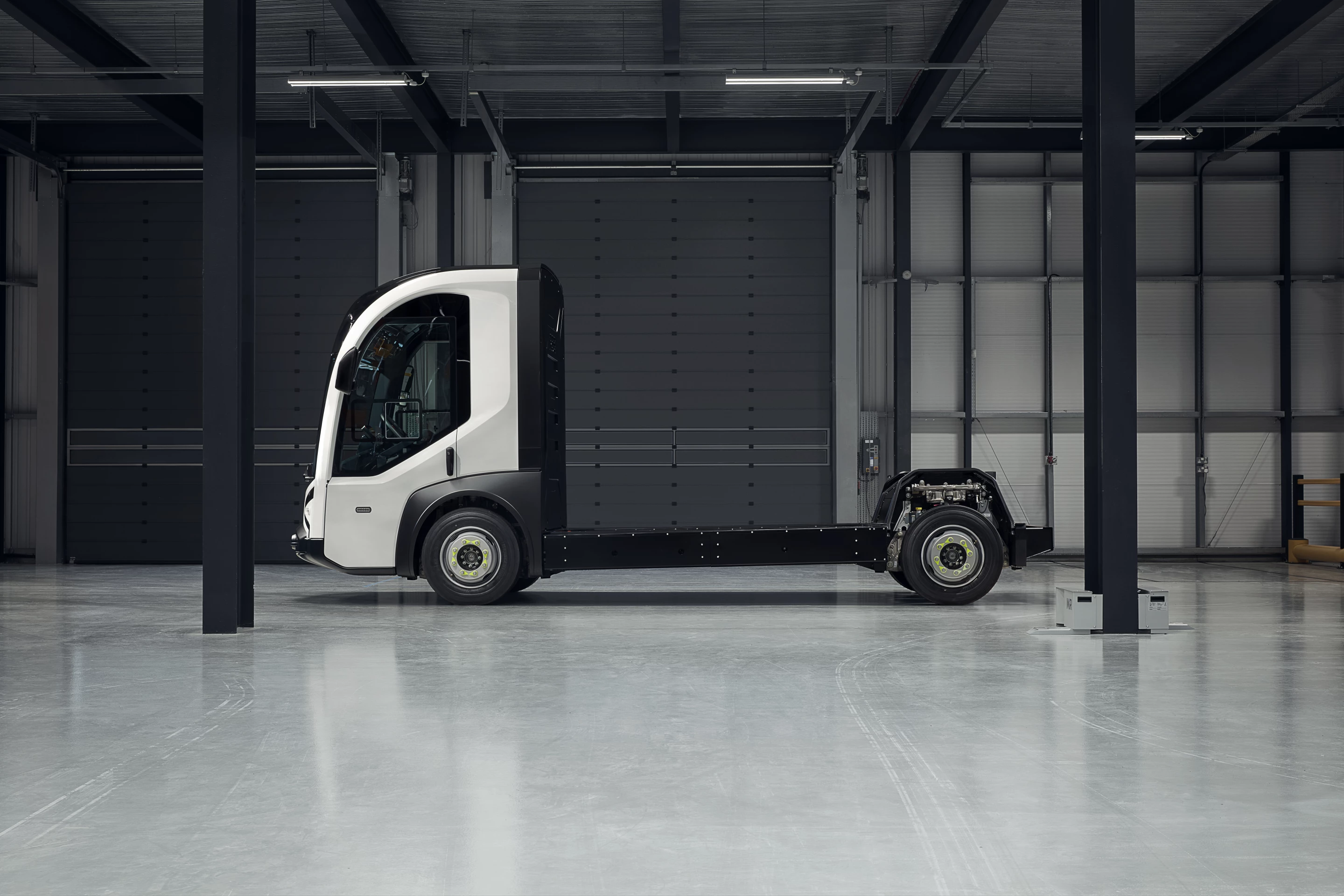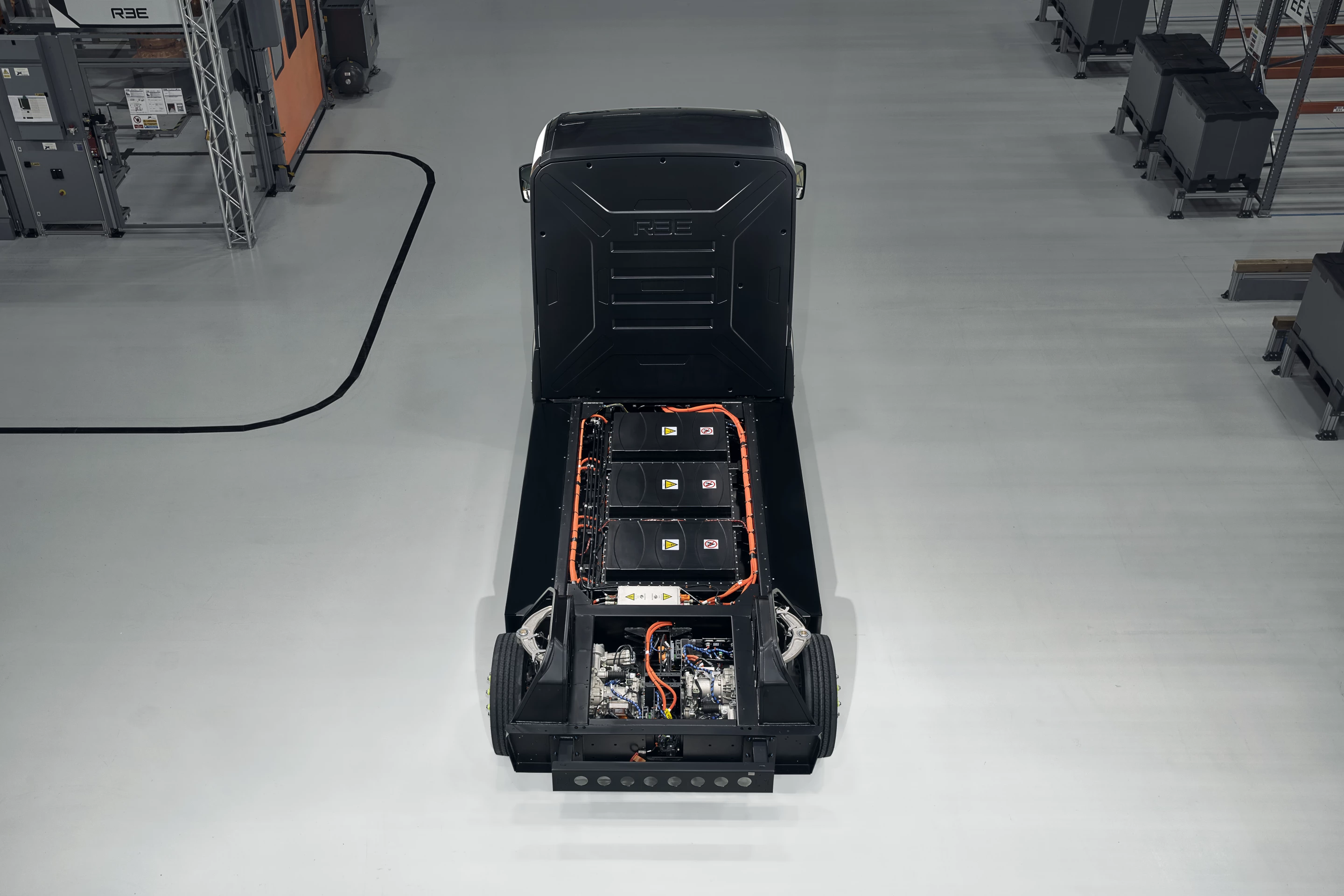This humble-looking, street-certified electric truck represents a huge milestone in a radical effort to transform the automotive industry. It's the first vehicle ever certified with no mechanical connection between the controls and the chassis.
The P7-C medium duty commercial truck is based on Israeli company REE's wildly flexible, super-flat skateboard chassis, which we first encountered in 2019 and have been following closely ever since. It's a 16,000-lb (7,258-kg) gross weight with a 16-foot (4.9-m) max vehicle length, a 150-mile (241-km) range, and a 536-horsepower (400-kW) all-wheel-drive, all-wheel-steering, all-wheel-braking powertrain.
Like many others, REE's EV platform starts out with a big, flat battery pack. But there are no electric motors, axles, steering racks or hydraulic braking systems on top of it – or even any suspension systems directly attached to it.
Instead, each wheel arch holds an electronically-controlled "corner unit" with everything from steering, suspension, electric drive motors, transmission, brakes, cooling and the wheels themselves built in. These entire units can be bolted on or off in seconds, making replacements or upgrades even quicker than a tire change.
The advantages? Well, it's about the flattest chassis imaginable, so you've got more space on top for passengers, cargo or whatever else, and the floors can be as low as they come, for easy stepping in and out. The steering wheel and controls can be placed more or less anywhere, making it incredibly easy to create right-hand, left-hand or central drive vehicles.
Design flexibility is incredible; you can build whatever kind of vehicle you like on top with almost no mechanically-imposed restrictions. Maintenance becomes super-streamlined, since faulty units can be switched straight out in a fleet operation. Four-wheel steering can easily be built-in as it is on the P7-C, or potentially even retrofitted as an upgrade to other designs.
And in a future-facing sense, these "everything-by-wire" machines are just as happy to accept electronic control signals from an autonomous control system as they are from a human driver. Automotive companies can get a single chassis crash-tested and certified, and then be confident that it'll remain relevant long into the robotaxi era.
REE has now announced that its P7-C Class 4 electric chassis cab has achieved Federal Motor Vehicle Safety Standards certification, as well as EPA approval, making it the first fully certified "everything by wire" vehicle.
“I believe our REEcorner is a true gamechanger, allowing us to build electric trucks that fleets will want to buy, and drivers will love to drive as we continue to see a strong demand for our work trucks,” said Daniel Barel, CEO and co-founder of REE Automotive, in a press release. “I am incredibly proud of the team at REE for completing certification of the automotive industry’s first ever fully x-by-wire vehicle. Our customers have been eagerly waiting for our vehicles to be ready to deliver and now our first demo trucks are on their way to dealerships for customer evaluations.”
It's unclear what's happening with volume manufacturing at this point, but REE is certainly moving quickly in its mission to disrupt the auto business. This certification is not only a validation of the technology; it could open the floodgates for other models built using the same underlying technology. Very neat stuff!
Source: REE








